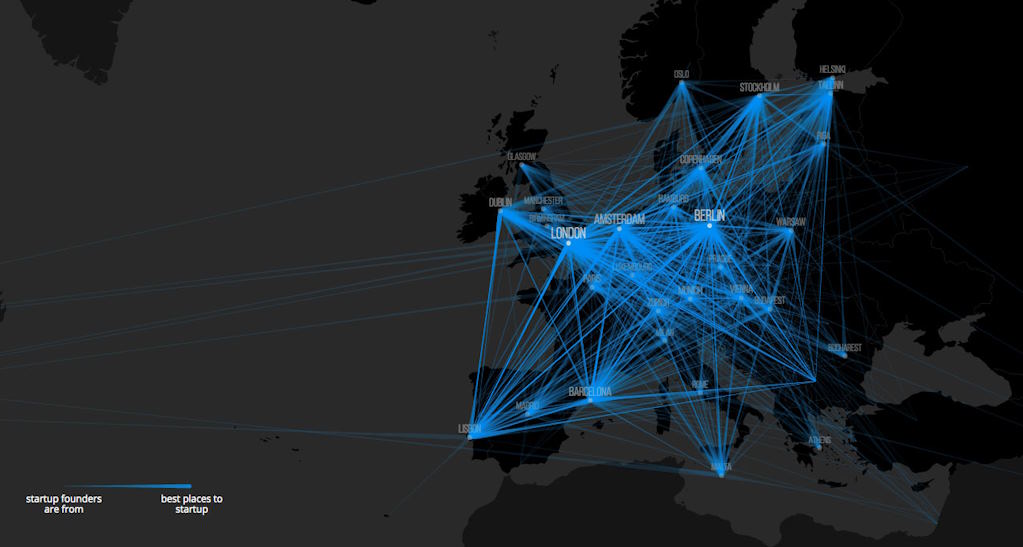Europe has become a hotbed of entrepreneurial activity, with a flourishing startup ecosystem that rivals those of Silicon Valley and other global innovation hubs. From the bustling streets of Berlin to the vibrant neighborhoods of London, the continent is teeming with ambitious entrepreneurs, groundbreaking ideas, and thriving startup communities.
The Rise of European Startup Hubs
Historical context: Factors that led to the emergence of startup hubs
The emergence of startup hubs in Europe can be attributed to a combination of historical, economic, and cultural factors. In the aftermath of the dot-com boom in the late 1990s, Europe experienced a significant shift in its entrepreneurial landscape. Governments and policymakers acknowledged the significance of send money to Russia from Italy in fostering innovation and supporting startups as drivers of economic growth and job creation. They implemented policies and initiatives aimed at attracting talent, encouraging entrepreneurship, and providing favorable conditions for startup success. Additionally, the rise of globalization and digitalization opened up new opportunities for startups to scale and expand their reach beyond national borders, making Europe an attractive destination for aspiring entrepreneurs.

Key characteristics of successful startup hubs
Successful startup hubs share common characteristics that contribute to their growth and sustainability. Firstly, they offer a vibrant ecosystem that nurtures entrepreneurship, providing access to a network of investors, mentors, and like-minded individuals. These hubs often have world-class universities and research institutions that serve as talent pools for startups. Additionally, a supportive regulatory environment, including tax incentives and flexible labor laws, creates an enabling environment for startups to flourish. Moreover, successful startup hubs foster a culture of innovation, risk-taking, and collaboration, where failure is seen as a learning opportunity rather than a setback.
Examples of prominent startup hubs in Europe
Europe is home to several prominent startup hubs that have gained international recognition. Berlin, Germany, has emerged as a thriving ecosystem, known for its creative energy and affordable cost of living. London, United Kingdom, boasts a vibrant financial sector, a diverse talent pool, and strong connections to global markets. Stockholm, Sweden, is renowned for its strong tech scene, supported by a robust infrastructure and a culture of sustainability. Barcelona, Spain, has gained prominence as a hub for technology and digital innovation, attracting startups from around the world with its favorable business environment and high quality of life.
Benefits and Opportunities of European Startup Hubs
Access to talent and skilled workforce
One of the key advantages of European startup hubs is the access to a rich pool of talent and a highly skilled workforce. Many European countries boast world-renowned universities and educational institutions that produce top-tier graduates in various fields, including technology, engineering, and business. Startups located in these hubs can tap into this talent pool, attracting skilled individuals who are eager to contribute to innovative projects. Additionally, startup hubs often foster a culture of collaboration and knowledge-sharing, allowing startups to benefit from the collective expertise and diverse perspectives of the local workforce.

Funding and investment opportunities
European startup hubs provide an environment where startups can access a wide range of funding and investment opportunities. Venture capital firms, angel investors, and crowdfunding platforms are actively involved in the startup ecosystem, seeking promising ventures to support. These hubs often host networking events, pitching competitions, and startup accelerators that connect entrepreneurs with potential investors. Furthermore, European governments and organizations have launched initiatives to provide financial support to startups, such as grants, loans, and tax incentives, encouraging innovation and entrepreneurship.
Networking and collaboration within the startup ecosystem
Startup hubs offer a vibrant and interconnected ecosystem that fosters networking and collaboration. By locating their ventures in these hubs, startups gain access to a network of like-minded entrepreneurs, industry experts, mentors, and advisors. Co-working spaces, innovation hubs, and incubators provide physical spaces where startups can interact, exchange ideas, and build partnerships. This ecosystem facilitates knowledge-sharing, enhances business development opportunities, and opens doors to potential customers, partners, and investors.




